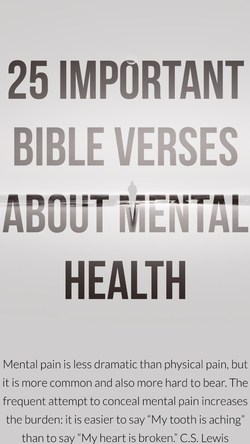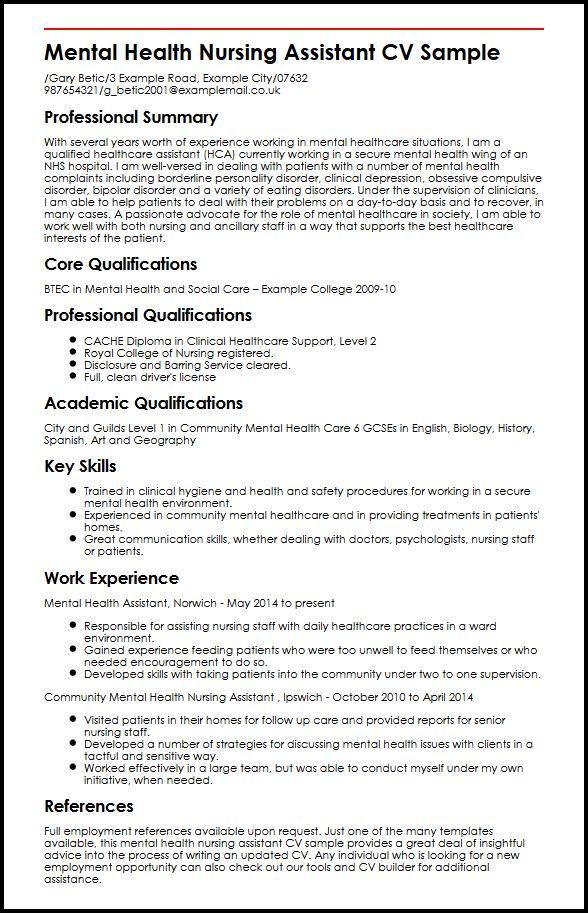Proof reveals rates of comorbidity of drug and alcohol usage and psychiatric problems are believed to be increasing (SEU, 2004). Preconception can impact numerous aspects of individuals's lives. Even a quick episode of psychological illness can have far-reaching impacts on health and wellbeing, disrupting work, families, relationships and social interactions, effecting on the health and wellness not just of patients, but also of their friends and families.
Stigma can be a barrier to seeking early treatment; often people will not look for professional assistance until their signs have actually ended up being severe. Others disengage from services or therapeutic interventions or stop taking medication, all of which can trigger relapse and prevent healing. If psychological disease is treated early enough, it can decrease additional ill health, and ultimately the danger of suicide.
The International Council of Nurses (2008) stated nurses are essential in helping with the "promo, prevention, care, treatment and rehab of individuals living with psychological health issue and support of their households and neighborhoods". It is for that reason crucial to reduce the preconception surrounding psychological health and stop these factors striking individuals's psychological wellness.
These included guidance on "social addition, health promotion, taking on preconception and the promotion of chances for a typical pattern of every day life". The DH (2001) concluded that "everyone has psychological health needs, whether they have a medical diagnosis of mental disorder". Box 1 functions recommendations of methods to help in reducing the preconception experienced by mental health service users.

In spite of nationwide campaigns, there has not been a significant change in the method the public perceive mental illness. While much research study has actually been performed to explore the general public's understanding of mental disorder, future research study needs to check out the experiences of service users and their households, carers or individuals near to them to comprehend and measure the impact that preconception has on their lives.
Rumored Buzz on How The Seasons Affect Mental Health
Stigma can affect many elements of people's lives Self-stigma is the process in which people turn stereotypes towards themselves How the basic public perceive people with mental health issues depends on their medical diagnosis Preconception can be a barrier to seeking early treatment, cause regression and prevent healing Future research must examine the experiences of service users and their households to comprehend and measure the effect of preconception (2009) Viewed stigma among individuals with typical psychological conditions.
( 2005) The stigma of mental disorder in Germany: A pattern analysis. International Journal of Social Psychiatry; 51: 276-284. (2009) Psychiatry in the Media. London: Royal College of Psychiatrists. (2009) Psychological health problem preconception and disclosure: effects of coming out of the closet. Concerns in Mental Health Nursing; 30: 509-513. (2010) 'I wish to be bipolar' a brand-new phenomenon.
( 2004) How stigma interferes with psychological healthcare. The American Psychologist; 59: 7, 614-625. (2001) Prejudice, social range, and familiarity with mental disorder. Schizophrenia Bulletin; 27: 219-226. (2005) Stigmatization of people with mental diseases: a follow-up research study within the Changing Minds campaign of the Royal College of Psychiatrists. World Psychiatry; 4: 106-113.
The British Journal of Psychiatry; 177: 4-7. (undated) Stigma. (2004 ). (2001 ). London: HMSO. (1999 ). London: HMSO. (2004) Preconception: the sensations and experiences of 46 individuals with mental disorder. British Journal of Psychiatry; 184: 176-181. (2008 ). Geneva: ICN. (2010) Associates and repercussions of internalized preconception for individuals coping with mental disease: An organized review and meta-analysis.
( 2009) A years of stigma and discrimination in psychological health: plus a change, plus c'est la mme chose (the more things change, the more they stay the very same). Journal of Psychiatric and Mental Health Nursing; 16: 501-507. (2010) From Discrimination to Social Inclusion - how does fibromyalgia affect your mental health. An Evaluation of the Literature on Anti Preconception Initiatives in Mental Health.
Our How Does Physical Activity Affect Mental Health Ideas
Dealing with the difficulty of a psychological health disorder is difficult enough. But another layer of discomfort features mental health conditions: handling other's responses to them. Mental health stigma describes the lack of confidences held by individuals and society toward those with trauma, depression, stress and anxiety, compound use condition, and other mental health challenges.

Moreover, access to treatment is required now more than ever, as 70 percent of teens are experiencing a boost in mental healthrelated signs as an outcome of the pandemic. Interestingly, however, the fact that a lot of people are suffering may have the unanticipated impact of decreasing psychological health preconception. New studies reveal that teens are driving the movement to decrease stigma.
More than 1,500 United States teenagers between the ages of 13 and 19 got involved. They originated from diverse backgrounds and geographical areas throughout the nation. The results showed that youths have a keen understanding of the mental health obstacles their generation faces. Here are some of the findings of the study related to this age group's perceptions around psychological health struggles and treatment.
64 percent think that enduring the pandemic will have a long lasting impact on their generation's psychological health. 82 percent of those surveyed urged Americans to talk more honestly and honestly about psychological health issues83 percent agreed with the declaration "It is very important for people to take action with their mental health." 79 percent wanted that their schools would offer a safe, inclusive area https://how-to-snort-cocaine.drug-rehab-fl-resource.com/ where students could come together to talk about psychological health.
Thus, starting in the late 16th and early 17th centuries, the word ended up being an unfavorable term. However, stigma around psychological health disorders is traceable back to ancient Greece. In addition, it also traces back to the middle ages and Renaissance durations in Europe. During these times, people typically believed that mental disorder was triggered by demonic ownership.
The How Does Mental Illness Affect Physical Health PDFs
It took years for higher awareness around psychological health concerns to filter into both the treatment market and into society at large. And even today, preconception around mental health is common. In truth, one study determining mindsets towards mental disorder discovered that just 25 percent surveyed were supportive to psychological health difficulties.
There is preconception related to drug addiction and stigma connected with psychological disease. Erving Goffman, a kept in mind sociologist, studied stigma in the 1970s. He describes stigma as "the phenomenon whereby a private with an attribute which is deeply challenged by his/her society is rejected as a result of the attribute - how does homelessness affect mental health." Preconception around psychological health or other conditions leads toSocial exclusion and isolationDecreased self-esteemDiscriminationLack of a helpful communityDifficulty finding education or employment opportunitiesLimited access to quality health care.
Individuals hesitate to disclose that they have psychological health problems. They fear they will be dealt with differently. how does sleep affect your mental health. When those with mental health conditions don't get aid, they self-medicate. They use drugs, alcohol, or cigarettes. In addition, they take part in self-destructive behaviors such as binge-eating or other eating conditions. Therefore, stigma can result in teenage substance abuse and consuming disorders.
Teenagers typically search for distraction as they attempt to get away both the discomfort of a psychological health issue and the pain of the resulting preconception. Over time, these habits can increase the danger of chronic illness and bad health. Therefore, studies find an increased risk of death at more youthful ages for people with psychological disease.